Hong Kong authorities arrested fifteen prominent activists, including former lawmakers, in what is thought to be the largest crackdown (HT: CFR) on the city’s pro-democracy movement since mass protests began last year.
Among the 15 arrested were media tycoon Jimmy Lai, whose Apple Daily newspaper is trenchant in its disdain for China’s Communist Party; heavyweight lawyers Margaret Ng and Martin Lee, and former opposition legislators “Long Hair” Leung Kwok-hung, Albert Ho, Lee Cheuk-yan, and Au Nok-hin, who was recently convicted of assaulting a police officer for speaking too loudly through a megaphone, adds Quartz. They were all detained “in connection with organising and participating in unauthorised assemblies,” the government’s security bureau said. Lee, 81, widely known as Hong Kong’s “father of democracy,” said he was proud to finally be a defendant and join the ranks of those who’ve been prosecuted.
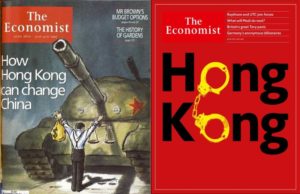 “This is not the rule of law. This is what authoritarian governments do,” former Hong Kong governor Chris Paten said in a statement, adding that it is becoming clearer each day that “Beijing is determined to throttle Hong Kong”. Patten also addressed the ongoing row over Beijing officials openly criticizing pro-democracy lawmakers and accusing them of misconduct in public office with their filibustering in Legco, reported RTIHK in Hong Kong.
“This is not the rule of law. This is what authoritarian governments do,” former Hong Kong governor Chris Paten said in a statement, adding that it is becoming clearer each day that “Beijing is determined to throttle Hong Kong”. Patten also addressed the ongoing row over Beijing officials openly criticizing pro-democracy lawmakers and accusing them of misconduct in public office with their filibustering in Legco, reported RTIHK in Hong Kong.
What we’re seeing here is essentially an effort to decapitate the protest movement, which the Communist Party views as an increasingly critical threat, notes one observer.
“Saturday’s mass arrests in HK, following the bold assertion by Beijing’s Liaison Office of comprehensive power over [the Hong Kong Special Administrative Region], represent a stunning advance toward the Chinese Gov’t’s demolition of One Country, Two Systems in fact, if not in name,” CFR’s Jerome A. Cohen tweeted.
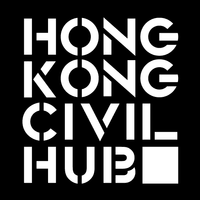 Protests that simmered throughout the second part of last year scored a victory in late November, when pro-democracy candidates—many of them new to the political arena—swept district council elections, the Wall Street Journal adds:
Protests that simmered throughout the second part of last year scored a victory in late November, when pro-democracy candidates—many of them new to the political arena—swept district council elections, the Wall Street Journal adds:
While street protests continued after that, many in the movement began turning their attention toward other ways of supporting it in civil society, such as organizing labor unions and patronizing restaurants and businesses that were seen as supportive of democracy and shunning those that were viewed as pro-government. Attention has now shifted toward supporting pro-democracy candidates in Legislative Council elections scheduled later this year.
“Now is the time for us to concentrate on these fronts rather than street politics,” said Eric Lai, vice-convener of the Civil Human Rights Front, an umbrella group that organized some of last year’s biggest marches. “The state intimidation, though threatening, will only consolidate people in Hong Kong to resist the authoritarian rule.”
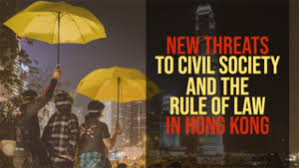
National Endowment for Democracy
The UN watchdog on freedom of assembly and several foreign governments, including the United States, condemned the arrests (SCMP), which Hong Kong officials said were due to participation in unauthorized marches in August and October. Some of those arrested belong to an older generation (NYT) of pro-democracy figures.
The arrest of Lee Cheuk-yan, a veteran politician and general secretary of the independent Hong Kong Confederation of Trade Unions, and 14 other high-profile activists, came amid a run of acts by authorities seen as alarming intrusions on Hong Kong’s autonomy, ahead of Legislative Council elections in September, the Guardian adds.
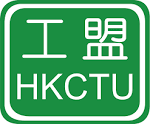 Lee said that the arrests would have seen people “pouring out onto the street to protest” in normal times. “But… Hong Kong people are very alert to the concern of infection, so they are using the chance of the pandemic,” he said. “This is a golden opportunity for them.”
Lee said that the arrests would have seen people “pouring out onto the street to protest” in normal times. “But… Hong Kong people are very alert to the concern of infection, so they are using the chance of the pandemic,” he said. “This is a golden opportunity for them.”
The World Movement for Democracy joined Clement Voule, UN Special Rapporteur for Freedom of Assembly and Association and many human rights groups in expressing concerned over the detentions and called for their swift release.
Crackdown will deepen dividing lines
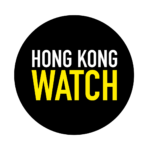 Both the Chinese Communist Party and the Hong Kong democracy movement are settling in for a long and painful struggle. says analyst Benjamin Bland. Beijing seems to genuinely believe it can prevail eventually by arresting trouble-makers, closing down the space for opposition, neutralising hostile foreign forces, co-opting the business community, and indoctrinating a new generation to be loyal to the motherland, he writes for the Lowy Institute:
Both the Chinese Communist Party and the Hong Kong democracy movement are settling in for a long and painful struggle. says analyst Benjamin Bland. Beijing seems to genuinely believe it can prevail eventually by arresting trouble-makers, closing down the space for opposition, neutralising hostile foreign forces, co-opting the business community, and indoctrinating a new generation to be loyal to the motherland, he writes for the Lowy Institute:
For their part, democracy activists well understand that the current leadership in Beijing will never respect their rights, autonomy, and identity. They are, in truth, fighting a rear-guard action to disrupt the authorities while hoping to keep the flame of resistance alight until something dramatic changes in Beijing.
“[The fact that] Beijing is not even pretending to keep up appearances heralds a dark new stage in Hong Kong’s post-1997 development,” New York University’s Alvin Cheung told the Guardian.
Veteran Hong Kong legislator Lee led a delegation of fellow democrats to Washington, DC, in May 2019 to explain the threats they pose to civil society at a National Endowment for Democracy (NED) forum (below).







